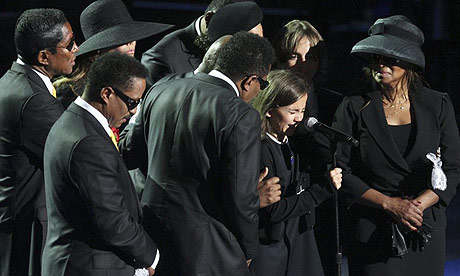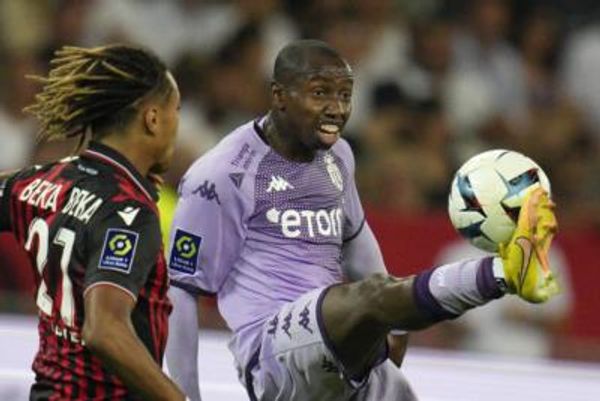
In the nine years since Big Brother turned psychoanalysis into a spectator sport, the media have decided that no story about a major celebrity is complete without an assessment of their mental health. The death of Michael Jackson provided celebrity psychologists with perhaps their greatest subject yet.
But what are the ethical responsibilities of these media psychologists? Should professionals be commenting on the wellbeing of celebrities on the basis of articles in Heat magazine?
A guiding principle of the British Psychological Society (BPS), echoed by psychologists I have spoken to, is that professionals should not comment publicly on the mental health of celebrities. Professional ethics would prevent them discussing one of their own patients – alive or dead – still less someone they hadn't even met.
As the society told me, celebrity stories "provide an opportunity to discuss a wide variety of psychological and mental health issues, and to increase public awareness of psychology". However, when talking to journalists, it said psychologists should "not be able to comment on that individual specifically".
It isn't hard to find examples stretching this general principle. Since Jackson's death, hundreds of articles have appeared in publications all over the world speculating about his mental health and the future wellbeing of his children, some including the comments of British psychologists.
David Wilson gave an in-depth psychological analysis of the star's character in The Daily Star. Linda Papadopoulos told the Mirror that his kids may be "damaged forever" by the custody battle.
Another psychologist, Linda Blair suggested the family showed "bad judgement" when it allowed Jackson's daughter to speak at his memorial service. "To be thrust into the limelight as Paris was is potentially very traumatic," said Blair. "When a child is in shock, as Paris still will be from her father's death, the most important thing is to keep everything as normal as possible. But the opposite has happened here."
The society told me that when approached by journalists it tries to provide them with appropriate experts to interview, but "we then always make it clear that our members will not be able to comment on that individual specifically." However, in many ways the society is a reactive, supportive organisation rather than a proactive regulator.
Psychologists I spoke to praised the help and training provided by the
BPS, but the society itself was unwilling to comment on the possibility that rules were being broken. It shows little desire to deal with the issue head-on.
The media must take a large share of the blame. When I spoke to psychologist and sex educator Dr Petra Boynton, she painted a worrying picture of the relentless demands from journalists. She had been asked to "analyse photos of Peter Andre and Jordan so I could pinpoint the 'exact moment' of their split", provide sex tips for Kerry Katona, and discuss whether Britney Spears is a suitable mother. One magazine asked her to "predict a man's sexual performance by his preferences in takeaway food".
This is disturbing not just because of the invasion of privacy, but also the bad science it propagates. Many of these stories have no scientific basis at all and risk misinforming the public, or damaging the reputation of the profession.
When I spoke to Linda Blair about the article in which she was quoted, it was clear that although she stood by her words, she was unhappy about the way they had been presented, particularly in secondary outlets that had picked up her original comments in The Sun. Key phrases had been removed, and she had been presented as attacking Jackson's family when she felt she had done nothing of the sort.
It is hard for professionals to retain control over their words. What Nick Davies called "churnalism", the growing trend among journalists to recycle content from other sources to generate articles, means that any comment a psychologist makes can end up travelling the world in an inter-continental game of Chinese Whispers. In this environment, no matter how carefully a psychologist frames their views, the chances are their words will end up being mangled by the media machine.
In an experiment you can try yourself, I put a single quote from Blair's Sun article into Google: "But here she was making a speech to billions of people across the world." In total 71 results were returned, with her words appearing in publications ranging from small blogs to USA Today. The headlines and attributions varied wildly, with many outlets framing the quotes as an attack on Jackson from "experts". Blair's words were used to invent a whole new story, without her permission.
Several of the psychologists I spoke to while researching this piece were pessimistic about the prospects of dealing with the problem, given its scale. Even if some psychologists are careful, the media will always be able to find another "expert" to weigh in with an opinion. And as long as there is a demand for these stories, they will be written.
Perhaps the answer is stricter regulation of the media and psychologists, or perhaps – as Blair suggested to me – we should ask ourselves why we demand so much knowledge about our celebrities. When you sit back and think about it, it's kind of creepy.
Martin Robbins writes for The Lay Scientist







